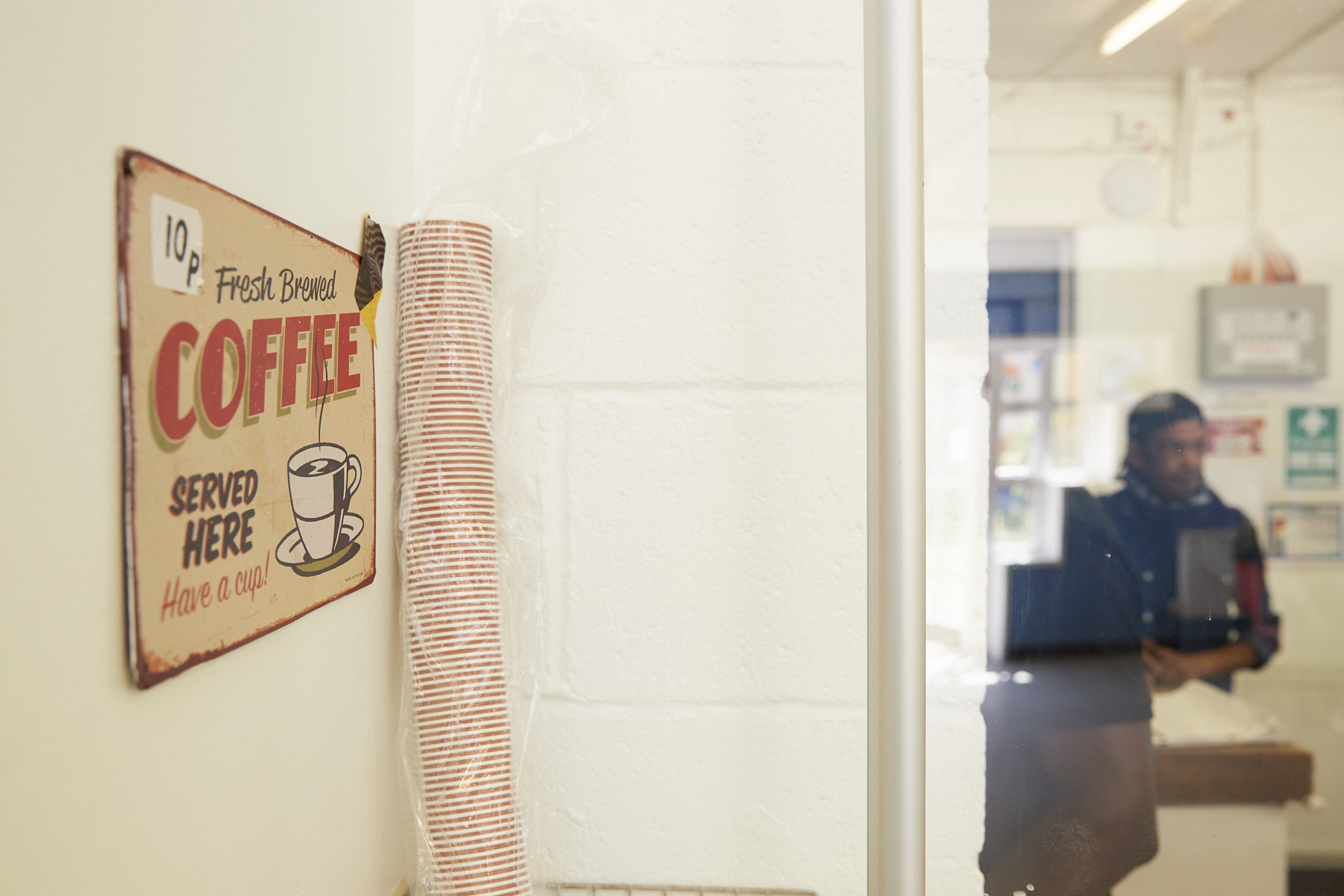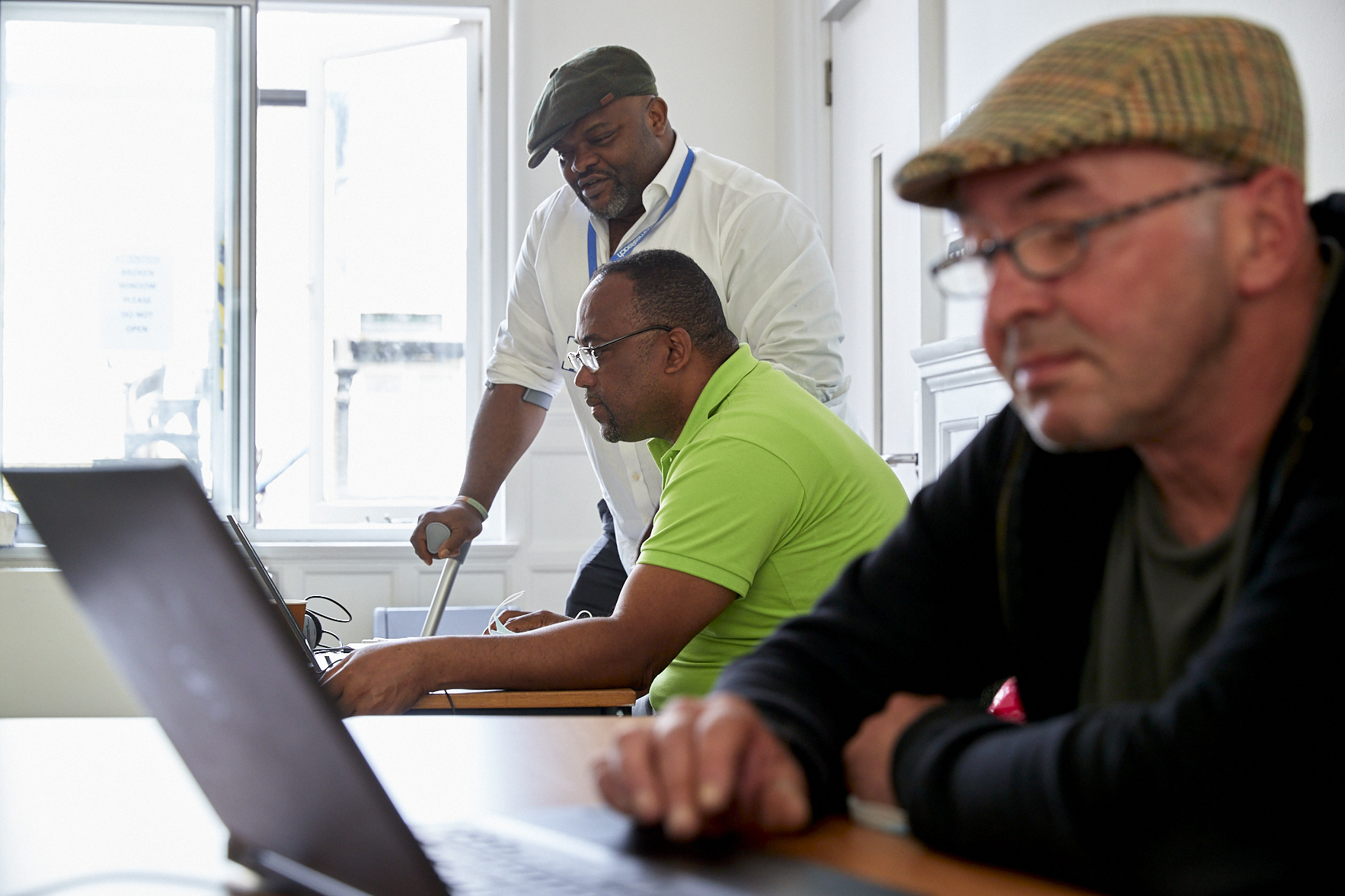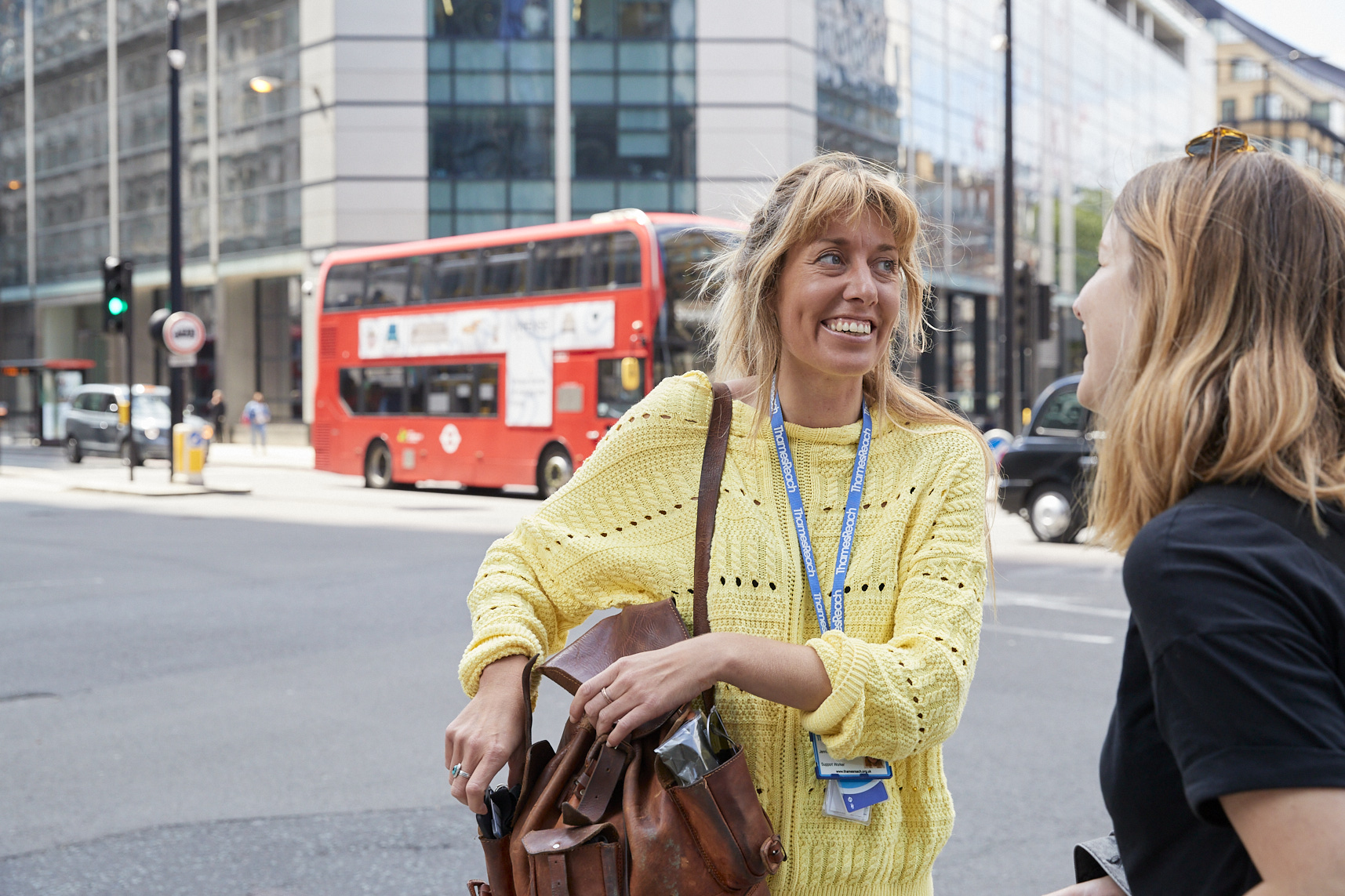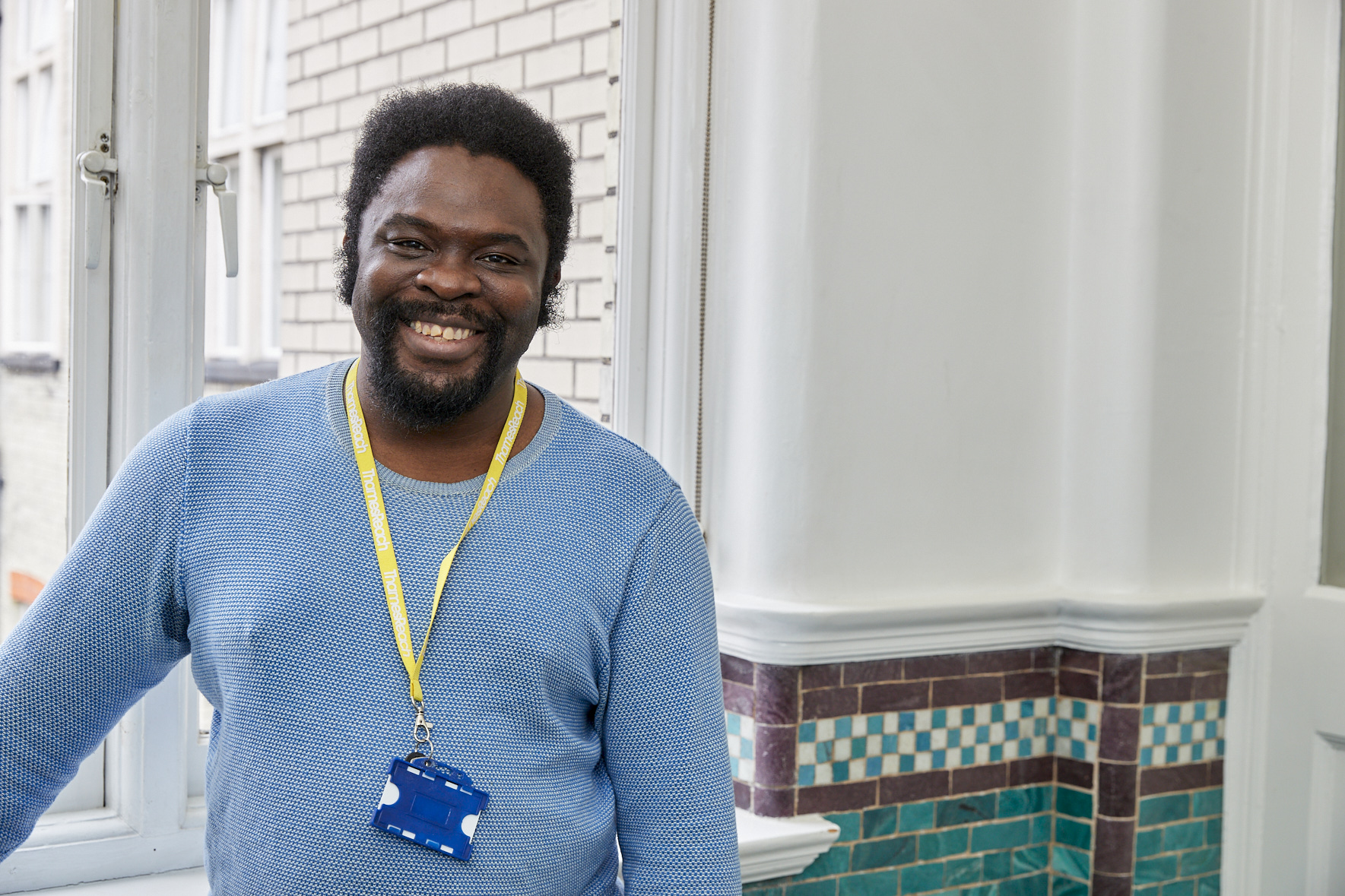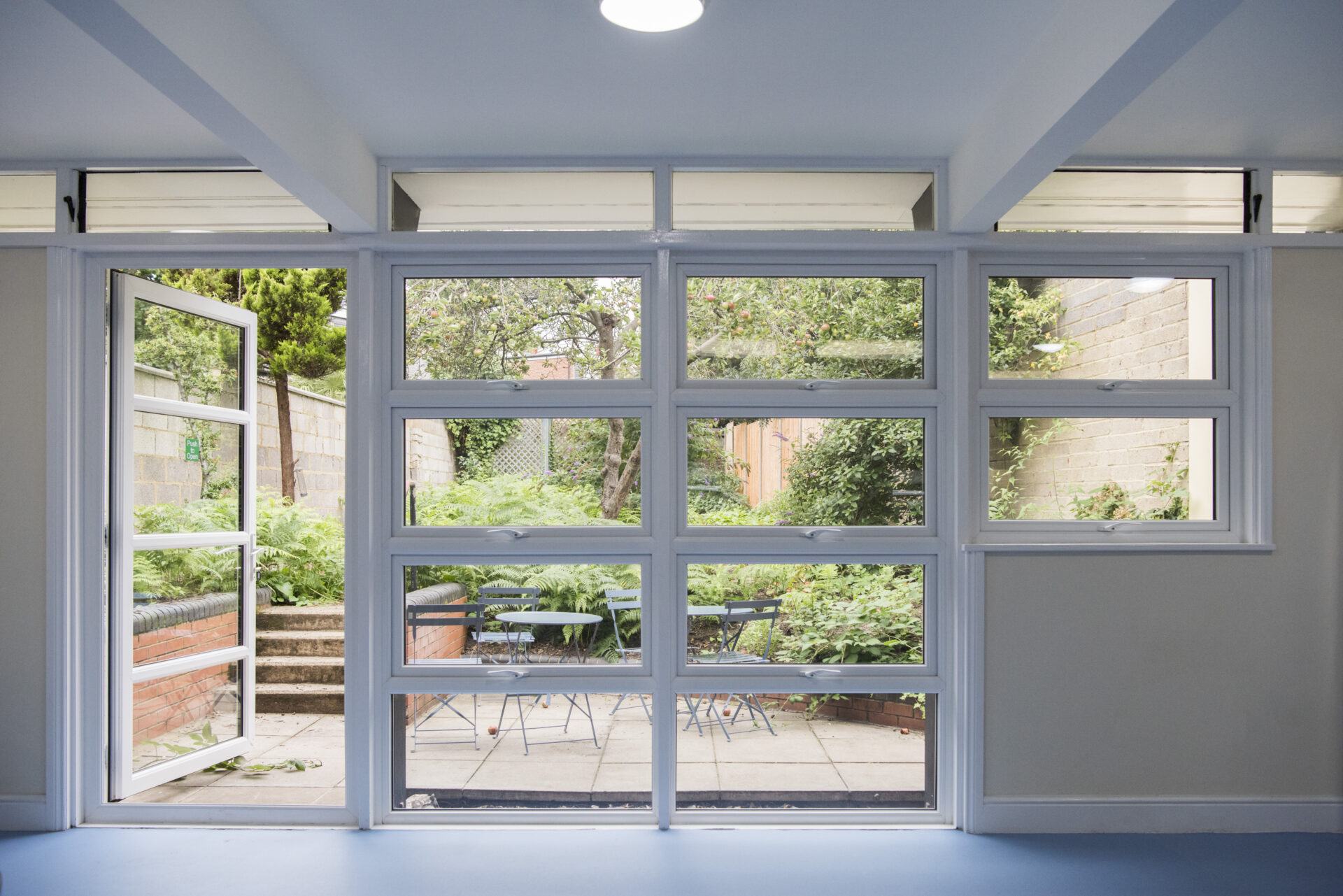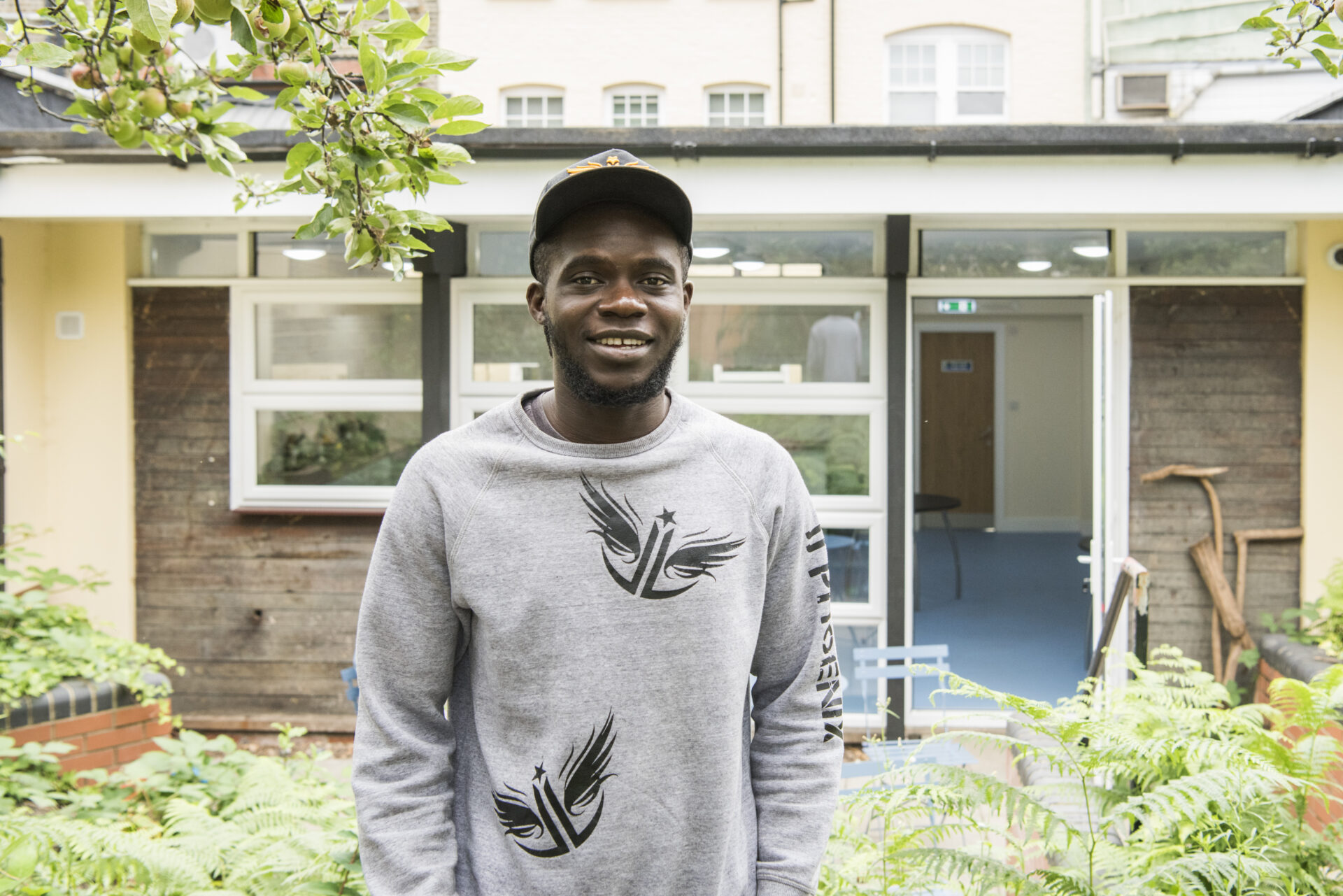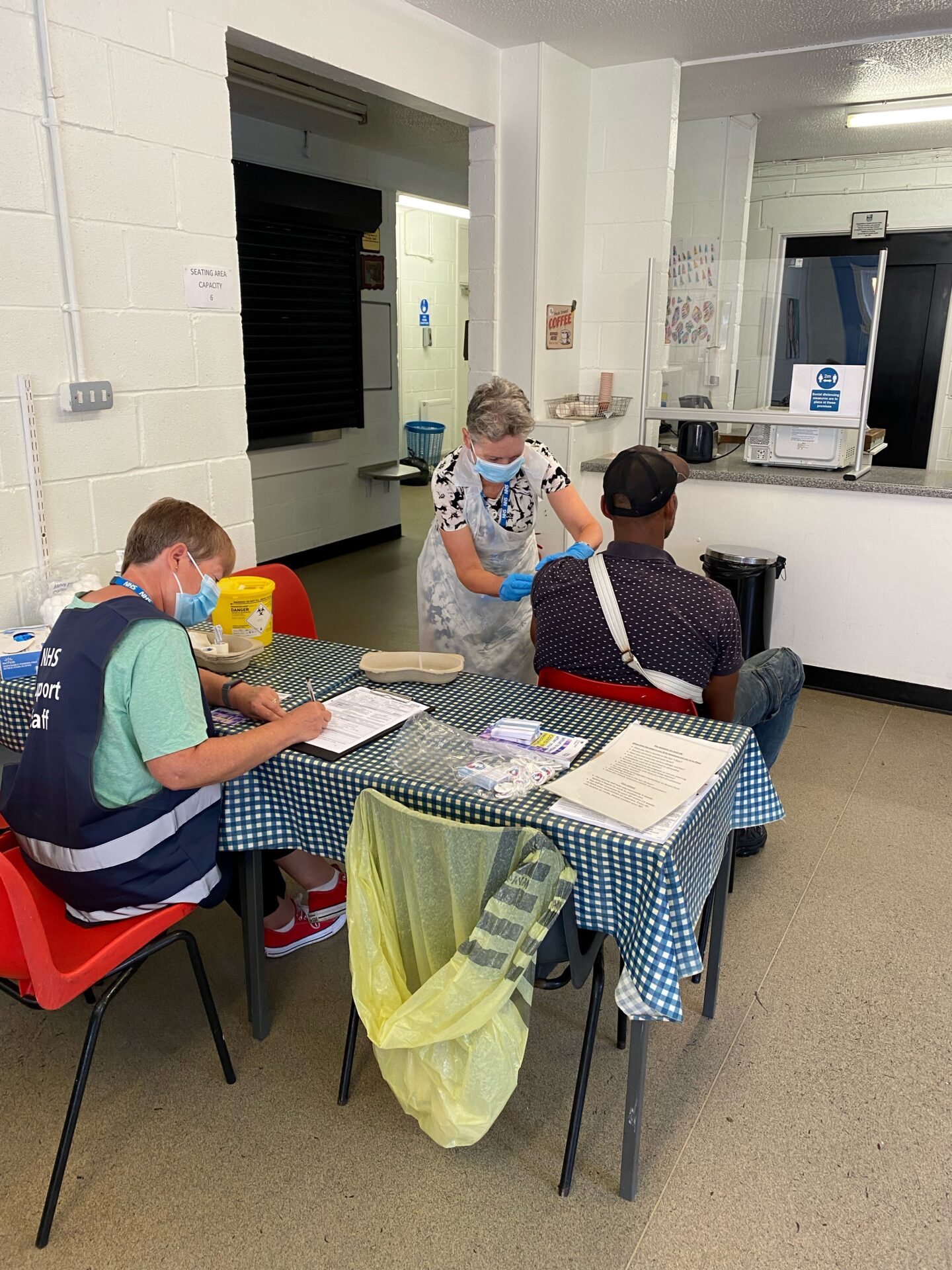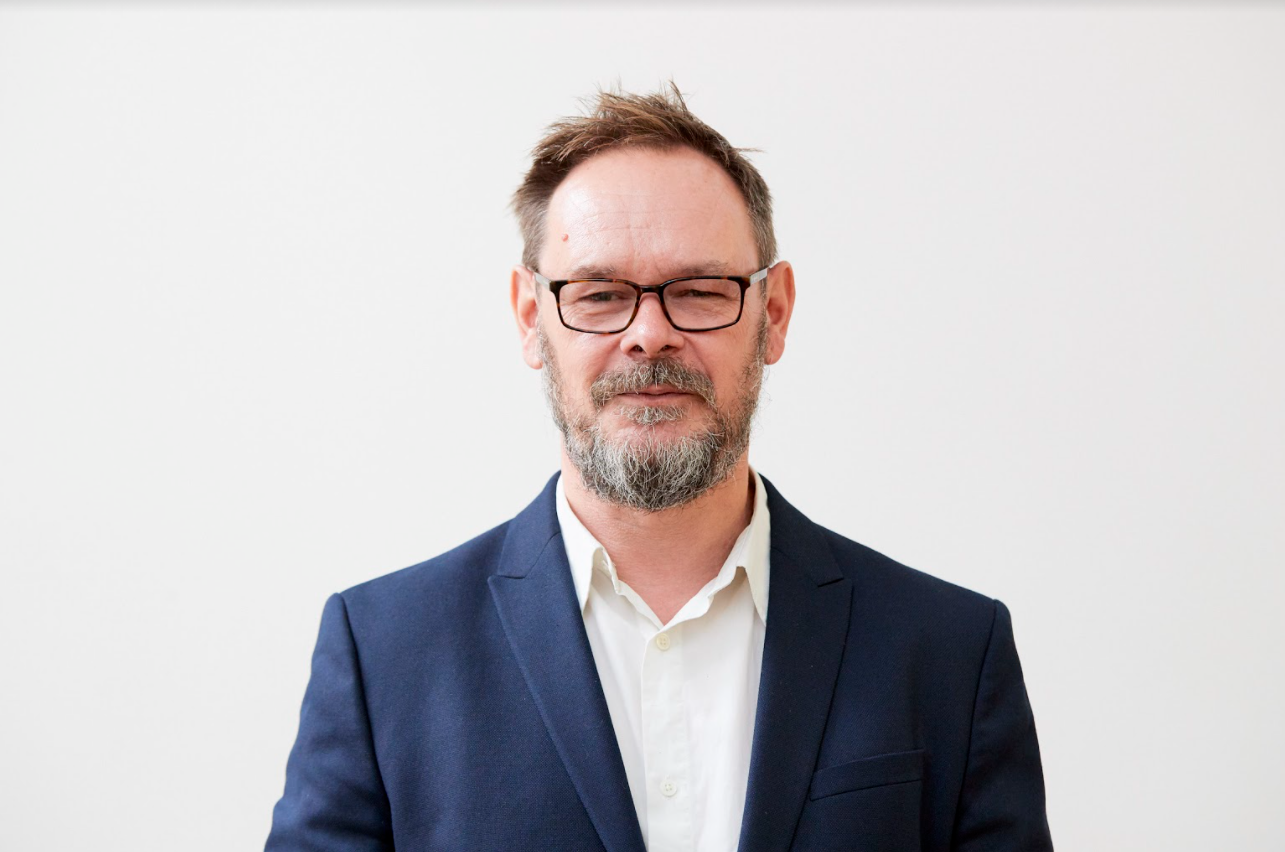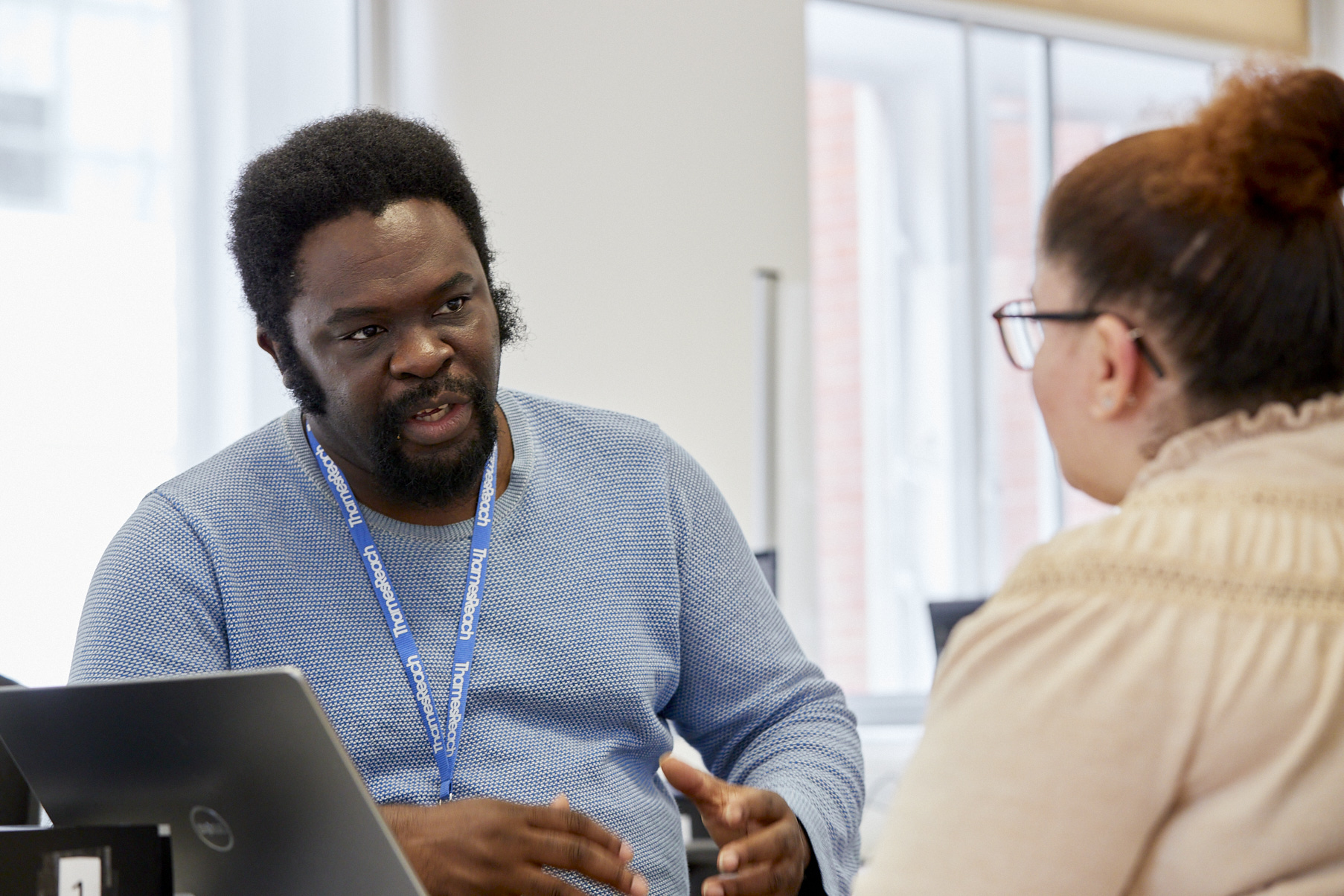Health inequalities are one of the main concerns for Thames Reach in our work to end street homelessness. We spoke with Yves, who manages our Robertson Street hostel in south London, on the work they are doing to ensure more people are getting access to the support they need.
Hi Yves, can you introduce us to your service?
Robertson Street is located in Lambeth, south London, and is what you would call a ‘first stage’ hostel, meaning we can get referrals from a range of sources through Lambeth’s Vulnerable Adults Pathway. We have a capacity for 42 residents and ideally each resident’s length of stay is between six months and two years.
What kind of support do residents have access to during that time?
We are an accommodation-based service to people over 40, so provide access and signposting to support. We want to help residents to be able to move on to independent or semi-independent living following a stay here. We’re part of the Lambeth Vulnerable Adults Pathway, and accommodate residents with a range of different and complex needs. These support needs may have previously contributed to their homelessness or not being able to maintain tenancies or other forms of accommodation. Other hostels in the borough work with different age groups, which is why we specialise in over 40s. We do have a couple of people under 40 but this is because their complex physical, or other, needs cannot be met in other services.
What is your approach to addressing healthcare inequalities at Robertson Street?
We strive to counteract inequalities and promote inclusion. Inequalities take several forms when we are working with people who have experienced street homelessness, as we must support people to bridge these inequalities, mostly in terms of healthcare. One of the things we do is work with the pathway manager and other external partnerships in order for people to move into needs-based accommodation. It is paramount that an individual can access the support they need. We have a nurse and GP clinic once a week at Robertson Street, as well as a prescribing clinic, and we have very good connections to community mental health services. We really make health a priority. Initial assessment work is carried out in-house when residents first move in, then we can signpost to physical, mental and other medical advice externally, meaning they can continue to get support in the community after they move on. We support residents to attend appointments, working with partnership agencies and Groundswell. This level of encouragement and support enables a smoother move-on into the community when the time is right.
What challenges has your hostel faced during the pandemic?
The main challenges were the move-on pathway becoming less mobile than usual. The repercussion for move-on being unavailable was that we couldn’t move people into the hostel either, so incoming and outgoing options were very limited. Community services that we always promote were facing closures and limited availability, such as day centres, mental health support, drug and alcohol services and other community-based resources, so we had to try our best to keep up momentum and motivation for move-on. While moving services online to Zoom is a good way of keeping people safe, many residents have found this difficult to engage with. We have been keeping residents motivated that their move-on will be happening eventually and kept preparation going. As a team we’ve accomplished this really well, and have been able to keep morale up. Aside from our normal work we had to implement extra cleaning on-site, but it made a big difference; we reduced risk of infection by sanitising the building twice every shift and educating residents about social distancing, risk management and maintaining safe practices.
What positive outcomes have emerged from overcoming these challenges?
We have a great team with good adaptability who can deal with and are supportive of a range of needs. There is a good balance between experienced members of staff and enthusiasm of people who have recently come to work in the sector. I’m proud that we’ve been able to provide a consistent and continual service throughout the pandemic, which reflects the project and Thames Reach as an organisation; we haven’t had to defer anything. Anything that wasn’t available in the community we brought in; our next step is now integrating residents and services back into the community.
